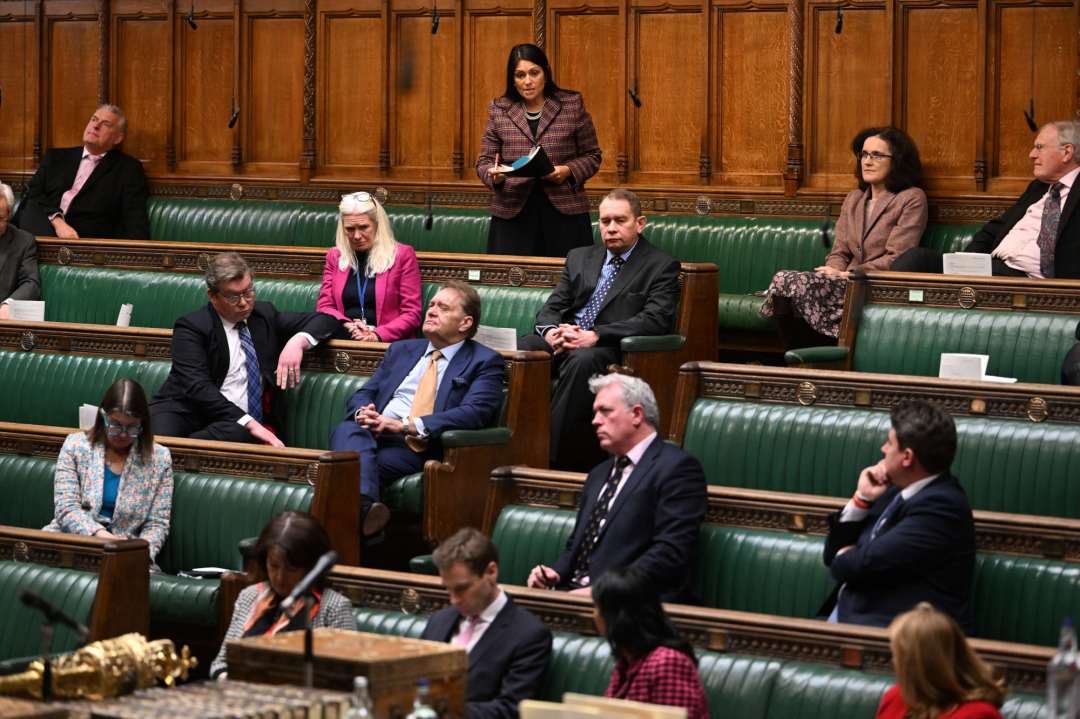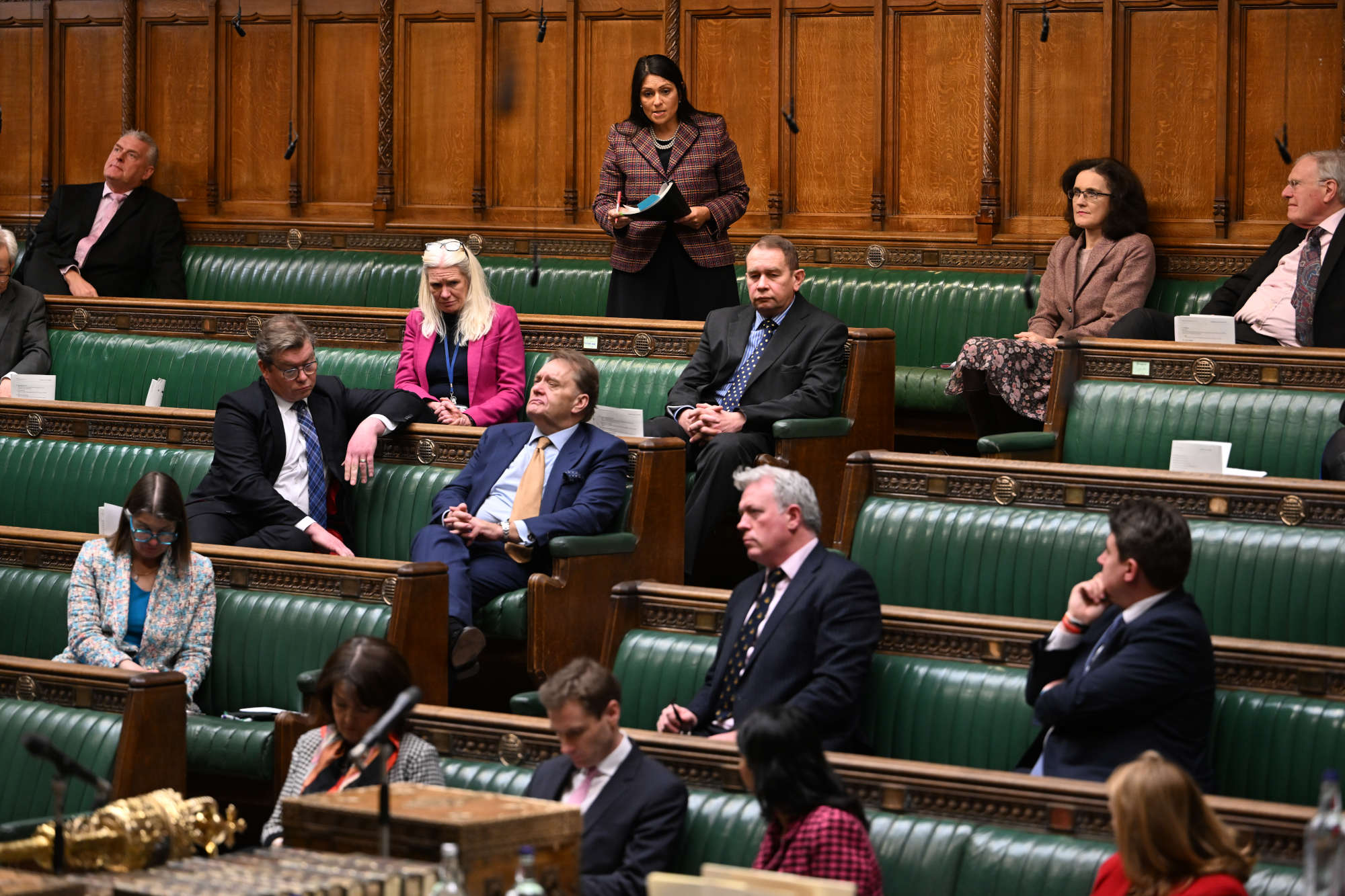After the first regular BBC TV broadcasts in 1930, it took the House of Commons 60 years to agree to televise its proceedings. Proposals to do so were discussed on a regular basis from the 1960s onwards, but repeatedly rejected; as late as 1985 the idea was voted down by 275 to 263. Not until 1990 did MPs vote in favour of making the broadcasts permanent.
One theme constantly reiterated by MPs opposed to televising the Chamber was that TV cameras would fundamentally change the nature of Parliament, encouraging Members to think of themselves as performers and to reach for soundbites rather than arguments. Gerald Howarth put it this way during the 1985 debate: ‘The television cameras would intrude; the intimacy of the Chamber would be lost. It would become a studio or theatre. The press would interpret our proceedings… it would choose the little nuggets that it wanted to televise.’
Nearly four decades on, it would be easy to regard Howarth’s fellow sceptics – among whose number was former Labour PM Jim Callaghan – as mere reactionaries and Luddites, foolishly trying to keep the modern world at bay. In fact, some of the predictions made by the anti-TV faction have come true. In particular, it seems hard to deny that there has been a steady decline in the sophistication of the rhetoric used in the House of Commons. Moral exhibitionism has crept in where once there were great, poetic orations.
This was brought home to me forcefully last week, by a clip of Matt Hancock using a question to the Prime Minister to denounce Andrew Bridgen for his increasingly peculiar comments about Covid-19 vaccines. On the substance Mr Hancock was broadly correct, and yet there was something very tiresome about his phrasing. Perhaps it was the invocation of ‘offence’, with the strong implication that to give offence was ipso facto to be in the wrong. Then there was the rather overblown moralism – the former Health Secretary used words like ‘disgusting’ and ‘anti-Semitic’ and suggested that Mr Bridgen’s comments had no place in wider society. The impression you get from such strident sermonising is not that the speaker wishes to refute someone who is in error, or lay out the truth as he sees it, but that he wants to assert his own moral superiority, and to have that superiority recognised. It has a strong whiff of the kind of portentous grandstanding that you might find in an undergraduate debating society.
This time last year David Davis was winning plaudits for his denunciation of Boris Johnson, in which he echoed the words of David Amery MP in his famous and damning attack on Neville Chamberlain in May 1940: ‘In the name of God, go!’ Two things struck me, however. First, the sharp end of Davis’ speech was delivered in a decidedly lacklustre fashion, and second, what resonance it did have was derivative. It was a quotation of a quotation: Amery was himself referencing a (probably apocryphal) remark of Oliver Cromwell’s, allegedly delivered to the Long Parliament in 1653. Davis also missed out most of the preamble which gave the original quotation much of its force. As with Hancock, it seemed that what Davis was aiming for was not a genuinely eloquent and compelling speech, but 20 seconds that would look good on the evening news.
Now wait, the defender of the modern Commons might say, these are trivial examples – mere interjections. But even if the net is cast a little wider, there just aren’t many good orators left in Parliament. Sir Geoffrey Cox, perhaps, is one example. But apart from him and a handful of others, who can still empty the bar, as it were? Ask even a close watcher of Parliament to name fine recent performances. They will struggle, and the average is certainly poor. Hilary Benn’s 2015 speech in favour of military action against ISIS is highly praised, but if you consider what was actually said, it was long on moral fervour and short on careful analysis or considered argument about what were good outcomes and how they could be achieved. In this respect it resembled some other much-lauded contemporary interventions, like the remarks made in October 2022 by the Finnish Prime Minister Sanna Marin. When asked about the possibility of giving the Russians avenues to de-escalate the war in Ukraine, Ms Marin simply reiterated that the Russians must leave the entire territory, as if a suitably impressive moral demand would solve the problem without any need for the boring work of diplomacy.
Compare these damp squibs with, say, Michael Foot’s superb contribution to the 1979 no-confidence debate. Foot’s speech, whatever we might make of it from the ideological perspective, was a sustained argument, with witty asides and a mastery of historical context. It is true that it contained a certain amount of moralism about alleged and actual Tory failures, but that never unbalanced the speech itself.
The decline in the quality of public speaking is not confined to the Palace of Westminster. At about the same time as the long-fought rear-guard action against the Parliamentary cameras was finally being overwhelmed, a noticeable shift was occurring in the way politicians – and others – conducted themselves in interviews.
One good way to get a handle on this shift is to search YouTube for extracts from the 1970s and 80s of public figures of various kinds being interviewed about their ideas, their lives, their reactions to current affairs and so on. Or perhaps tune in to the BBC’s occasional repeats of election night coverage from past general elections. Any perusal of political media from before the early 1990s will show, beyond refutation, that across the political class there was a fluency and precision, and an ease with thinking in public, that has not vanished exactly, but has become very much rarer. Everyone speaks more slowly and with more care than they do now. Thoughts are developed in coherent sentences. There are very few attempts at the kind of popularity-seeking applause lines which make programmes like Question Time so unbearable in the modern era. Even something like the rather terse 1979 argument about The Life of Brian, pitching John Cleese and Michael Palin against Malcolm Muggeridge and Bishop Mervyn Stockwood, was conducted in a fairly considered and civilised way, which I don’t think would be possible on British TV in 2023.
Even children were part of this more sophisticated discursive culture; there is a remarkable clip from the early 1970s of Mrs Thatcher being questioned by a group of ten- or eleven-year-olds, and their ability to converse with the then-Education Secretary intelligently, without the kind of precocious politicking that would mar similar interactions now, is very notable.
This is partly the result of a culture that has become more and more centred on the image and the act, and not the word – on spectacle and feelings, rather than thought and conscious reflection. It requires considerable self-discipline, especially in the world of the smartphone and the tablet, to seek out the kind of silence and stillness which is fundamental to coherent and serious contemplation. The parents of those children questioning Mrs Thatcher had likely been born in the 1930s and 1940s, when barely anyone had a television (as late as the mid-Fifties only a third of British households had one), and no doubt that had an impact on the atmosphere of their own homes as adults. But other factors are in play too, including the narrowing of moral vocabulary that has resulted from the decline of Christian observance. Someone who must construe all their moral judgements in terms of the violation of individual rights, or of offences to identity, rather than making use of an older, richer ethical tradition, will necessarily struggle to discuss many important matters at a level beyond the superficial. And the growing censoriousness of recent decades, coupled with modern Britain’s insistent egalitarianism, mean that to be a funny, confident, eloquent speaker with a good grasp of history bears no small reputational risk. A joke, after all, must have a target, and the unofficial list of permitted targets becomes smaller by the day, while the person who takes the time and makes the effort to become a good public speaker will likely face the dreaded charge of elitism.
All the same, we must maintain that it is worth the risk. Rhetoric matters, especially in politics, where the great affairs of the nation are dramatised, narrated and recorded for posterity.







Comments